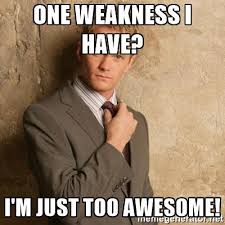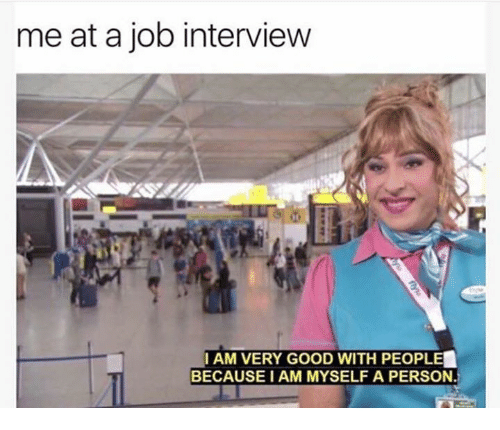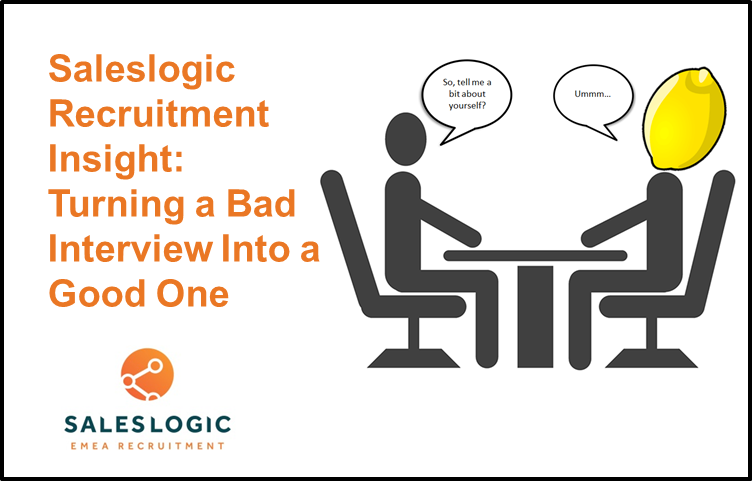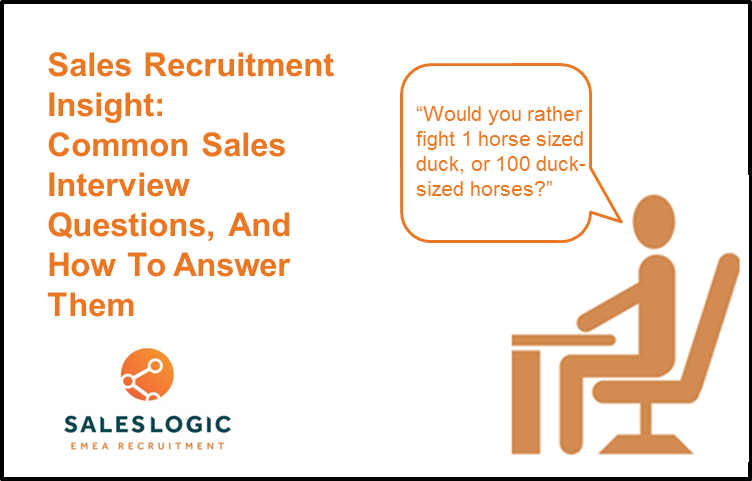An interview is where you’re meant to show the best you- positive, enthusiastic, and an all-around great potential employee. But an interview can quickly turn sour with a simple slip of the tongue or thoughtless comments. Saleslogic recruiter Eloise shares with us some things you shouldn’t say in an interview
Things to avoid saying during an interview:
My last boss was a real (insert chosen insult)
This is a no-no for multiple reasons. Firstly, blaming someone else for your work woes can show you’re unable to take responsibility for your actions. The interview might think- if you’re going around badmouthing your former employer, you could just as easily do that about their company, something I don’t imagine they’d be keen on. Also, it might get the interviewer wondering if maybe you’re the one that’s difficult to work with. “Even if you didn’t get on well with your last boss, keep your answer positive or at least neutral”.
I don’t really care about making friends at work- “This is something a candidate said to me during an initial interview. Even if it’s true, an employee could take this to mean you’re unfriendly or not a team player”.
Sorry, I’m a bit hungover.
“I had a candidate say in an interview, ‘sorry, I can’t really think straight, I’ve such a bad hangover’- not a good look”. Turning up to a planned interview with a hangover can be very disrespectful to the interviewer, and the process. It shows you don’t care about the role or the interviewer’s time. It also could show that you’re irresponsible and that you prioritise your drinking over your responsibilities. Make sure the night before your interview you spend it preparing and getting a good night’s rest instead.
Not appropriate to ask during the interview
- So what holidays or benefits do we get?
- When will I be up for a pay rise?
- When can I start taking annual leave?
- Can I change my hours?
“The above questions should definitely not be asked during the interview. These are questions you can ask the recruitment consultant prior or post interview”. Asking these questions before you’ve even been offered the job says you’re only in it for the money or perks. Employers want to see you being invested in more than just your pay check, but in the company and the work itself.
I didn’t ever really use (essential sales skill) in my last job
Often an interviewer will ask you to describe a time where you used a key skill. If they ask you: ‘give me an example of a time you used (key sales skill everyone should have used), and you respond by saying, I can’t think of a time, or I never did, you could probably just get up and leave. Even if you can’t think of an example, give an example of how you would have handled the situation. For example, a classic question is ‘give me an example of when you had to deal with conflict’; if you’ve never dealt with that type of situation- you could say ‘I always try to deal with any conflicts, with clear, open and honest communication’.

I don’t have any weaknesses
If this is how you answer the ‘what’s your greatest weakness’ question, then I’m sorry to tell you, you’re wrong. Saying you don’t have any weakness can come across as cocky, arrogant and immature. “This is always such a difficult question to answer, especially because it’s a bit of a trick question. The interviewer wants to see you turn a negative into a positive. My answer is, I used to be less organised, once I become aware of this as a weakness, I worked towards implementing changes to help me, and it’s now one of my strengths.
It wasn’t my fault I didn’t reach my targets
As mentioned earlier, blaming someone else for your woes is not a positive sign. Always take responsibility for your results. “I once had a candidate that, when I asked about why he had done poorly one year, was very honest and said that he had tried a new technique and it just didn’t pay off, but that he learned a lot from it, and the next year hit nearly 180% of his target. His answer showed honesty, maturity and that he could make the best of a negative situation”
No, I don’t have any questions
Not having any questions at the end of an interview is a sign to the interviewer that you either aren’t interested in the role or weren’t really listening. Always go into any interview with some questions to ask.
Here are some great questions to ask:
- Is there anything about my CV or experience that concerns you?
- What do you see as some of the biggest challenges facing the company in the next 5 years?
- What do you enjoy most about working for the company?
Bonus no no’s
Swearing. An interview is not the appropriate time for swear words. It’s unprofessional, so keep the profanities for the pub
Overly personal comments- Never ever comment on someone’s appearance, figure, or even perfume. Saying, gosh you smell nice, crosses a line and will leave the interviewer and you feeling awkward, embarrassed or weirded-out.
So did I get the job? This puts the interviewer in an uncomfortable position and it is far too early to ask if you’ve got the job before the interview process has even finished. It is, however, a good idea to ask what the next steps are in the interview process.
Interviews can be nerve wracking, and often we say the wrong thing just out of nerves. Stay focused and remember to breathe and think before you answer any questions. Hopefully, the above advice will help you put your best foot forward, and keep it out of your mouth for your next interview!

You might also enjoy


Saleslogic is a leading sales recruitment agency in London. We specialise in digital sales jobs, SaaS sales jobs, software sales jobs and more. Click here to view sales jobs we are currently recruiting for.